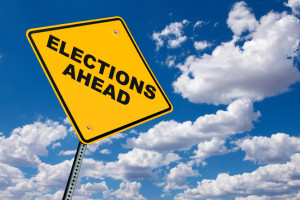 By Steve Brawner , © 2018 by Steve Brawner Communications, Inc.
By Steve Brawner , © 2018 by Steve Brawner Communications, Inc.
Let’s say you were on trial for a murder you didn’t commit. Your fate would be decided by average Arkansans.
Which process would you prefer?
A. A small group of focused people from all walks of life would hear both sides of the case through an orderly process. You would have a chance to testify. By the end, they would have adequate information upon which to make their decision.
B. Maybe a million distracted Arkansans would decide your case along with other cases by clicking “guilty” or “innocent” on an electronic ballot. Their information would be limited, and much of it would come from 30-second ads and mailers produced by anonymous people who say you’re guilty.
If you chose “A,” that’s the jury system. If you chose “B,” that’s the way we elect judges.
Why we do what we do
Periodically in a representative democracy, we ought to remember why we do what we do, and maybe rethink how we do it.
What we do is have elections, for two very good reasons. One is to prevent a small group of wealthy and powerful and often secretive people from controlling the government. The other is because collective wisdom can be gained from diverse, individual perspectives.
So once again we’re in the middle of judicial elections, and the question must be asked if this is the best way to do this. In order to run campaigns, judicial candidates solicit donations that come partly, if not largely, from lawyers and others who might later bring cases before them. That’s a clear conflict of interest. Judicial candidates don’t run with party labels and aren’t supposed to say how they would vote in cases, which means voters have limited good information.
Meanwhile, once again, out-of-state groups are flooding the airwaves and voters’ mailboxes with information that’s sensationalistic and lacks balance and context. In particular, the Judicial Crisis Network is attacking two of the Supreme Court candidates, Justice Courtney Goodson and Judge Kenneth Hixson, in order to elect the other, David Sterling, who says he has nothing to do with it. It doesn’t disclose its donors, but it’s almost certainly a small group of those wealthy and powerful and definitely secretive people mentioned above.
Last year, state Sen. Jeremy Hutchinson, R-Little Rock, tried to get a constitutional amendment on the ballot where Supreme Court and Court of Appeals positions would be filled by the governor nominating candidates recommended by a commission, and the Senate confirming. In 2015, Rep. Matthew Shepherd, R-El Dorado, advocated a similar process for appointing Supreme Court justices and then letting voters decide when their term ended if they should be retained. That’s how it’s done in Missouri. Neither idea gained traction.
Other solutions? One is to limit campaign spending, which can be a First Amendment issue. Why should this opinion column be “free speech” and why am I “the press,” but a political mailer is neither? Another is to allow unrestricted spending, but make it transparent. Donors could give, but not anonymously. That could be done at the state level, if Arkansas’ lawmakers were so inclined. They’re not.
Why not “voter duty”?
Or, going back to the beginning of this column, what if, just as voters now have jury duty, they had “voter duty”? Every election cycle, 200-300 voters could be randomly summoned to a meeting place, where for a day or two they heard directly from judicial candidates and from others who might have useful information – prosecutors, defense attorneys, the Bar Association, etc. At the end, they would vote until one candidate had a majority.
That orderly and focused process would limit the power of political donors and anonymous out-of-state groups. It would not give extra power to the governor and legislators. Fewer average Arkansans would participate, but 200-300 would be acting on good information rather than 1 million acting on bad information, or no information.
It’s just an idea, and maybe a bad one. It not going to happen.
But we should rethink how we do elections – perhaps radically rethink it. How do we encourage more of the good stuff – the sharing of power among average people with diverse perspectives? At the same time, how do we limit some of the bad stuff that is concentrating power in the hands of a wealthy and powerful and often secretive few?
I’d love to hear your suggestions, but I need more than “take the money out of politics.”
That’s never going to happen, either.